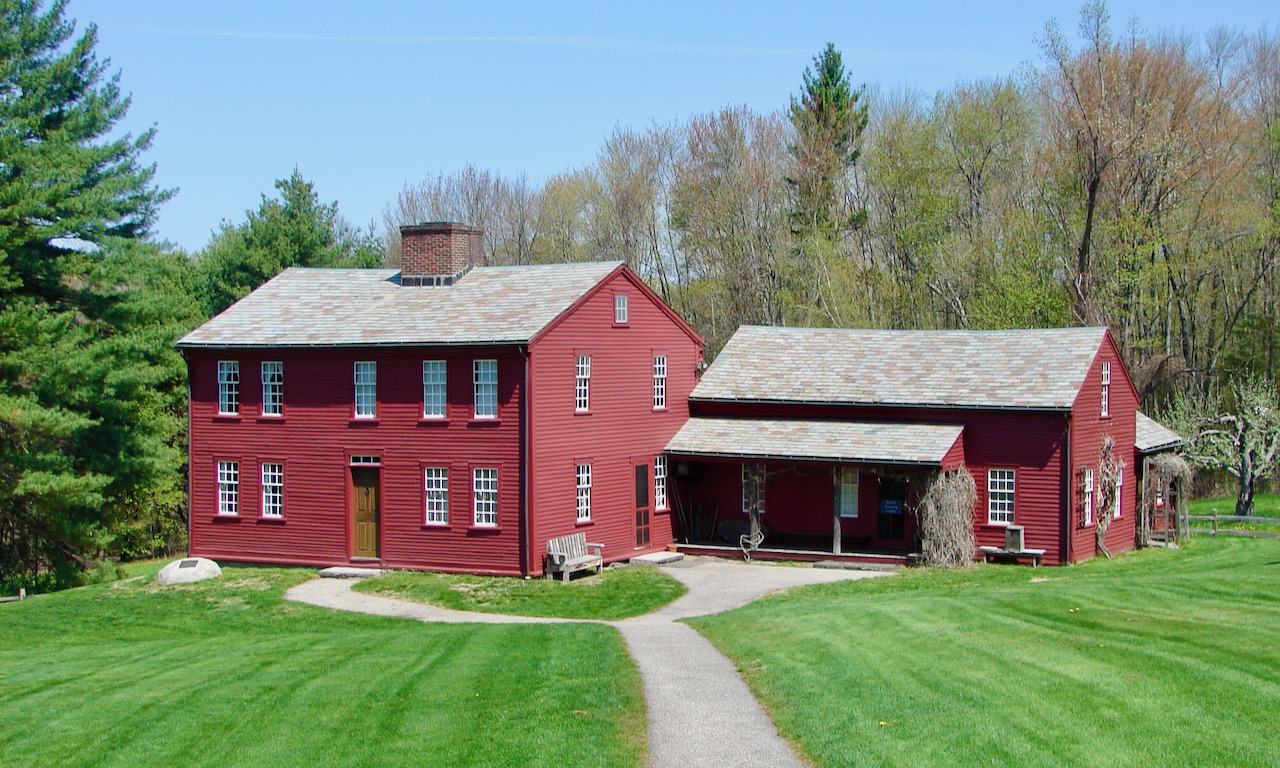Fruitlands Museum was founded in Harvard, Massachusetts by Clara Endicott Sears (1863-1960) with the opening of the Fruitlands Farmhouse in 1914. Drawn to the breathtaking view of the Nashua River Valley, Sears built her summer home atop Prospect Hill in 1912. Her estate eventually grew to over 450 acres, which included a dairy farm and an ever-growing museum complex. As she looked out over the valley to the west, Sears recognized that the landscape was the key to understanding the past, as it had hosted many people and cultures for thousands of years. She devoted her life and considerable fortune to develop a museum as a place of education and inspiration to all.
The Fruitlands Farmhouse preserves the history of the transcendentalist movement. It is here, in 1843, that Amos Bronson Alcott and Charles Lane created the short-lived utopian community, “Fruitlands,” based upon Alcott’s vision of a peaceful society, far removed from the conventional way of life. The red farmhouse, in which they and Alcott’s family lived, is the only building original to the site. Other buildings were either moved there or built as the complex grew. Today, The Trustees continue to operate multiple museum and gallery buildings and manage a network of trails on the property.
The site has hosted some of the most famous people in America. Henry David Thoreau walked Prospect Hill and admired the view; Ralph Waldo Emerson, a supporter of Alcott’s, visited here; and a young Louisa May Alcott would later relate her experiences at Fruitlands in her books Transcendental Wild Oats and Little Women.
The Fruitlands Farmhouse was designated a National Historic Landmark in 1974.

